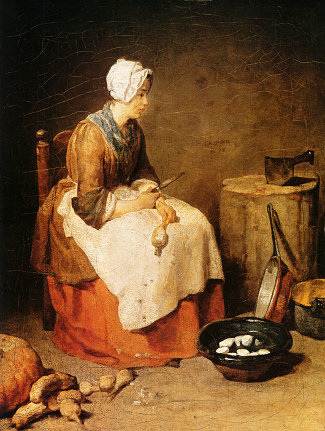THE CHICKEN CROSSES THE ROAD
is an anagram of
SHE CHECKS CORN AT OTHER SIDE
THE CHICKEN CROSSES THE ROAD
is an anagram of
SHE CHECKS CORN AT OTHER SIDE
dissave
v. to spend more than one earns
In 1965, in a noble attempt to help the rest of us understand Australians, Alistair Morrison published Let Stalk Strine, a glossary of terms used Down Under:
AIR FRIDGE: average
BANDRY: boundary
BAKED NECKS: bacon and eggs
DISMAL GUERNSEY: decimal currency
EGG NISHNER: air conditioner
GARBLER MINCE: a couple of minutes
MARMON DEAD: Mom and Dad
RISE UP LIDES: razor blades
SAG RAPES: sour grapes
SPLIT NAIR DYKE: splitting headache
STEWNCE: students
TIGER LOOK: take a look
“Aorta mica laura genst all these cars cummer ninner Sinny. Aorta have more buses. An aorta put more seats innem so you doan tefter stan aller toym — you carn tardly move innem air so crairded.”
The book went through 17 impressions in one year, a sign the problem had gotten completely out of hand. Just a few months before it appeared, the English author Monica Dickens had been signing copies of her latest book in a Sydney shop when a woman handed her a copy and said, “Emma Chisit.” Dickens inscribed the volume “To Emma Chisit” and handed it back. “No,” said the woman, leaning forward: “Emma Chisit?”
Charade sentences devised by Howard Bergerson:
FLAMINGO: PALE, SCENTING A LATENT SHARK! =
FLAMING, OPALESCENT IN GALA TENTS — HARK!
NO! UNCLE-AND-AUNTLESS BE, AS TIES DENY OUR END.
NO UNCLEAN, DAUNTLESS BEASTIES’ DEN YOU REND.
HISS, CARESS PURSUIT, OR ASTOUND, O ROC, O COBRAS!
HIS SCARES SPUR SUITOR, AS TO UNDO ROCOCO BRAS.
HA! THOU TRAGEDY INGRATE, DWELL ON, SUPERB OLD STAG IN GLOOM =
HATH OUTRAGE, DYING, RATED WELL? ON SUPER-BOLD STAGING LOOM!
In the same spirit: 1! 10! 22! 1! = 11! 0! 2! 21!
WON TON spelled backward is NOT NOW.
Concerned that the men of 1768 no longer read the Bible, Edward Harwood decided to translate the New Testament into modern language. The result has been called “turgid,” “absurd,” “ridiculous,” and “one of the most discussed and insulted” Bibles of the 18th century. Samples of his work:
Before: “So then because thou art lukewarm, and neither cold nor hot, I will spue thee out of my mouth.”
After: “Since therefore you are now in a state of lukewarmness, a disagreeable medium between the two extremes, I will in no long time eject you from my heart with fastidious contempt.”
Before: “Give us this day our daily bread.”
After: “As thou hast hitherto most mercifully supplied our wants, deny us not the necessaries and conveniences of life, while thou art pleased to continue us in it.”
Before: “We shall not all die, but we shall all be changed.”
After: “We shall not all pay the common debt of nature, but we shall by a soft transition be changed from mortality to immortality.”
And here’s the Lord’s Prayer:
O thou great governor and parent of universal nature (God) who manifestest thy glory to the blessed inhabitants of heaven–may all thy rational creatures in all the parts of thy boundless dominion be happy in the knowledge of thy existence and providence, and celebrate thy perfections in a manner most worthy of thy nature and perfective of their own! May the glory of thy moral development be advanced and the great laws of it be more generally obeyed. May the inhabitants of this world pay as cheerful a submission and as constant an obedience to Thy will, as the happy spirits do in the regions of immortality.
Harwood said his translation “left the most exacting velleity without ground for quiritation.”
CEDED, DEEDED, MUMMY, MUUMUU, and YUMMY are each typed with one finger.
In 1978, as part of an initiative to adopt gender-neutral language, the city council of Woonsocket, R.I., dubbed its manholes “personholes.”
After two weeks of nationwide derision, they changed their minds.
Time reported, “The council members voted to go back to manholes, indicating that it will be a long time before a person-person delivers Woonsocket’s mail.”

Ross Eckler coined the sentence Unsociable housemaid discourages facetious behaviour.
Each of the five words contains the five major vowels in a different order.
musophobist
n. one who regards poetry with suspicious dislike